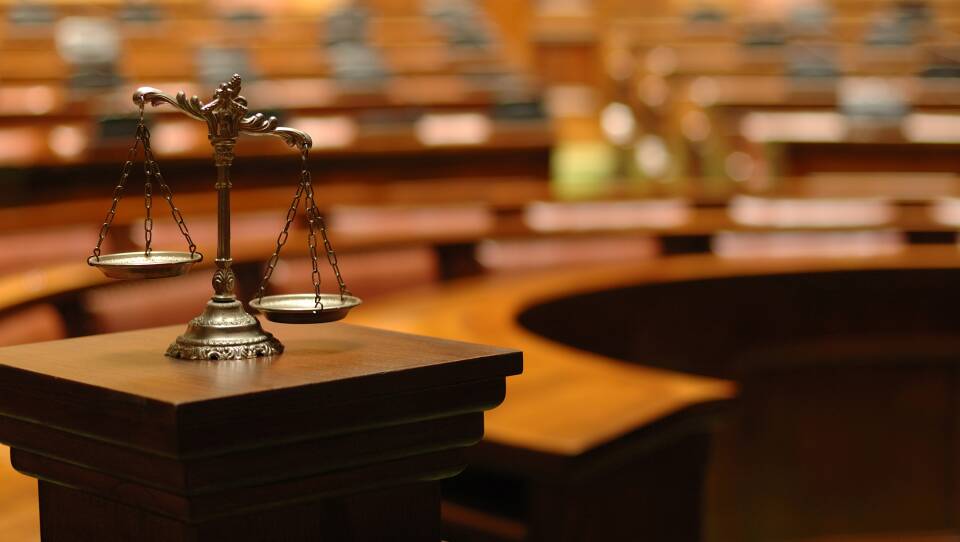The Supreme Judicial Court has recently made a decision on police searches and seizures. WGBH's Morning Edition host Joe Mathieu spoke to Northeastern University law professor and WGBH News legal analyst Daniel Medwed about the SJC's decision. The transcript below has been edited for clarity.
Joe Mathieu: So the SJC issued this notable decision late last week involving video surveillance. Tell us about it.
Daniel Medwed: Well on Friday, the SJC released its decision in a case called Commonwealth v. Mora, which concerns whether it's constitutional for the police to use so-called pole cameras to gather information against criminal suspects.
Here's what happened: The attorney general's office staged a lengthy investigation into an alleged drug network in Essex County, specifically in Lynn and Peabody, and as part of that operation, set up five hidden cameras on public telephone and electrical poles. Some of them were trained directly on the homes of suspects to capture their comings and goings. As a result of this operation, the attorney general's office obtained some really damning and damaging video footage that together with other evidence provided the basis to indict 12 criminal suspects with crimes.
Now, let's move forward a little bit. Some of those defendants then moved to suppress or exclude this video footage on the grounds that it was unconstitutionally obtained. The trial judge disagreed, finding that this wasn't a search in the constitutional sense — that you don't have this thorough privacy interest in what you do outside of your home. Then several defendants sought what's called an interlocutory appeal, which is an immediate challenge to a judge's ruling that asks the SJC to basically hold the case on stand by while it resolves the legal question. And that's precisely what the SJC did; it looked at the specific issue of whether you could use pole cameras in this fashion without violating the Constitution.
Mathieu: So it sounds like this could have real consequences given how popular speeding cameras are [and] other forms of video surveillance. The cameras are always rolling. So how did it turn out?
Medwed: In an opinion written by Justice Barbara Lenk, who coincidentally is retiring next week — this may be her last opinion, for all that I know — the SJC determined that aspects of this operation is implicated our Constitution [and] that there were some problems with how the poll cameras were used. And this, to put it mildly, is a real setback for the attorney general's office in prosecuting this particular case.
Mathieu: Daniel, you mentioned that the court held that using a hidden camera on a telephone pole, electronic pole, like whatever you want to call it, here to conduct surveillance on people is a search for constitutional purposes. What was the court's specific reasoning and why is that important?
Medwed: Well, I think there are two key takeaways here. First, and we've talked about this before, the U.S. Constitution and U.S. Supreme Court decisions are really just the floor of constitutional protection in the United States. States can't go below that floor [and] provide fewer protections to citizens in terms of individual liberties and rights than the federal constitution would demand, but states can always go above it. There really is no ceiling; you can always provide greater individual protection.
The SJC has a long and illustrious history of doing just that, and that's what happened in this opinion. Justice Lenk bypassed any federal constitutional analysis and really pegged her analytical hat to the state constitution. She cited Article 14 of the Massachusetts Declaration of Rights in finding that the Constitution was implicated here.
Second, her precise reasoning was very, very interesting. She acknowledged, as lots of other courts have, that the use of pole cameras in general is not necessarily unconstitutional; you don't have this complete privacy interest in what you do outside the home. However, she found that it was the targeted and prolonged use of the cameras here, specifically how they were directed at the defendants' homes, that raised some constitutional questions. It created what she called a mosaic — a complete, elaborate and intricate composite picture of the comings and goings of the suspects that really did interfere with their privacy interests.
Mathieu: We're almost out of time, Daniel, but what was the consequence of the ruling?
Medwed: Well, the upshot is that the SJC is sending this case back to the lower court to determine whether there was probable cause to set up the pole cameras to begin with. So we'll have to wait and see how this all plays out, but no matter what, it's a very important case for privacy interests.





